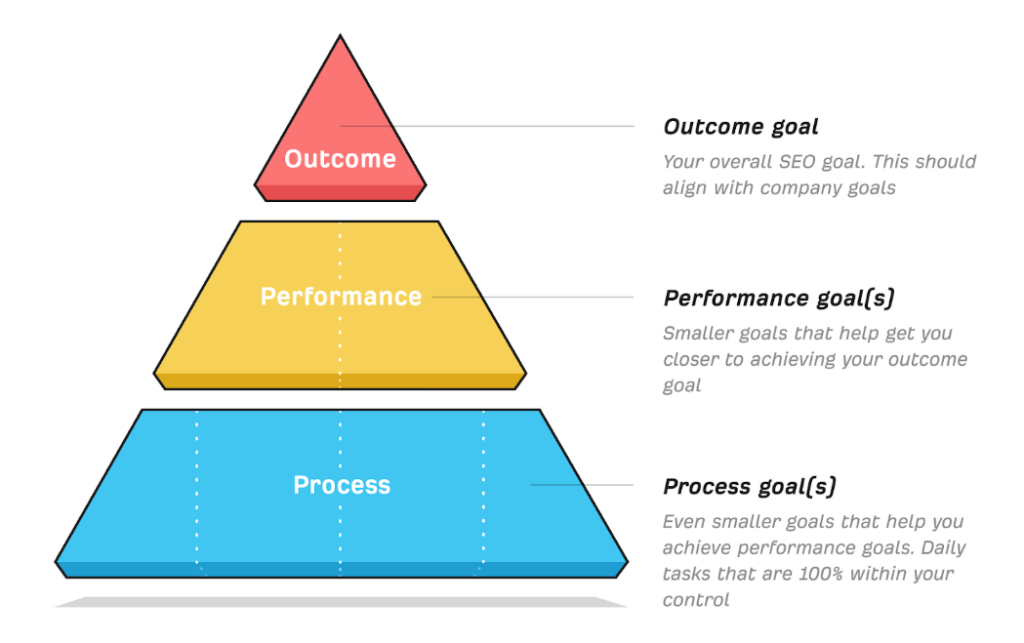There is no question that SEO drives incredible and long-lasting results if done correctly and consistently. It’s one of the most profitable digital marketing channels that helps you achieve business goals such as brand awareness, sales and profits.
However, SEO is getting more challenging with each passing day, given Google’s constantly evolving algorithmic changes. In such turbulent times, it’s not easy to prove the value of SEO and link building services to potential clients (or even current ones).
How can you as an SEO anticipate and overcome their objections and genuinely help them grow? Read on.
Understand the Client’s Goals
Begin by having a thorough understanding of the client’s objectives, target audience, and marketing goals. This will help you tailor your explanation to their specific needs and show how SEO aligns with their overall business objectives.
Pose open-ended questions that allow them to express their goals and expectations clearly. For example:
- What is your level of understanding of SEO?
- What are your main objectives for implementing SEO?
- Are you looking to increase website traffic, generate leads, or improve conversions?
- What specific products, services, or areas of your business do you want to focus on?
- Do you have any specific target audience segments in mind?
- What are your short-term and long-term goals for SEO?
You can break down these larger business goals into smaller SEO-specific goals.

Educate Them About SEO
Many clients ma1y not be familiar with SEO or its benefits. Provide a brief overview of what SEO entails and how it works. When educating your client about SEO, it’s important to provide clear and concise information that highlights the key aspects and benefits of SEO. Here are some points to consider when educating your client about SEO:
- Explain why they need more organic traffic.
- Tell them what higher search engine rankings can do for their business.
- Discuss the significance of keyword research and intent matching.
- Highlight the importance of optimizing on-page elements.
- Demonstrate the value of creating high-quality, relevant, and engaging content.
- Explain how SEO enhances the overall user experience.
- Show them the importance of building high-quality backlinks from reputable websites.
- Clarify that SEO is a long-term strategy, not an overnight gimmick.
Explain that SEO is a set of strategies and techniques designed to improve a website’s visibility in search engine results, leading to increased organic traffic and more conversions.
Emphasize the Benefits of SEO
Clearly highlight the benefits of SEO and how it can help the client achieve their goals. SEO is a cost-effective marketing strategy compared to other forms of digital advertising such as PPC. While SEO requires an investment of time and resources upfront, once you achieve higher organic rankings, the ongoing maintenance and optimization costs are relatively low.
Unlike PPC campaigns, where you pay for each click, organic traffic generated through SEO is essentially free. This makes SEO a sustainable long-term strategy for driving consistent traffic to your website.
SEO allows you to target specific keywords, phrases and topics that are relevant to your business and attract your target audience. When users search for these keywords, they are actively looking for information, products, or services related to your industry. By appearing in search results for these relevant queries, you can drive high-quality, targeted traffic to your website. These visitors are more likely to convert into leads or customers because they have a genuine interest in what you offer.
Chart Out the Competitive Landscape for Them
SEO has become an essential component of any marketing strategy. The one thing that drives any company to action is knowing that their competitors are making great progress in that area. SEO is no different. If you can show your client that their competitors are already leveraging SEO to gain an advantage, you’ll magically get your budget and approvals.

Identify the client’s main competitors (by asking them and by googling) and then conduct a competitive analysis on their SEO activities. Analyze their competitors’ SEO strategies, keyword targeting, content approach, and backlink profiles. This analysis will help you understand the opportunities and challenges for your client and craft an effective SEO and link building strategy to pursue.
Address All Concerns and Objections
No matter how well you educate your client, they still might have their doubts about implementing SEO. Take the time to listen to their concerns and address them one by one. Provide clarifications, examples, or data to alleviate their reservations.
The best way is to share examples of successful SEO campaigns or case studies that demonstrate how you’ve helped businesses similar to theirs. Showcase the positive results achieved – such as higher rankings, rise in organic traffic, or more sales. This helps build trust and credibility in your proposed strategy.
Craft a Tailored Strategy
Propose a tailored SEO strategy that aligns with their goals and budget. If needed, you can do an upfront SEO audit for their website (and then decide whether to share the results for free or not).
Give them personalized and precise recommendations for keyword research, on-page optimization, content creation and link building that actually move the needle for them. Show them that you have a comprehensive plan in place to address their specific needs.
Define Measurable KPIs
Work with the client to establish key performance indicators (KPIs) that align with their goals. The metrics you decide to monitor can include website traffic, organic rankings, conversion rates, number of backlinks acquired, or business objectives such as revenue or sales.

Clear KPIs will help track progress and demonstrate the impact of your SEO efforts.
Highlight the Long-Term ROI of SEO
Emphasize that SEO is a long-term investment with a potentially high return on investment (ROI). While it may take time to see significant results, the impact of SEO can be long-lasting and sustainable. Show them how SEO can provide ongoing value and contribute to their business growth over time.
Set Realistic Expectations
Ensure that the client’s goals are realistic and achievable within the given timeframe and budget. If their expectations seem unrealistic, provide insights and recommendations based on your experience and industry benchmarks.
Help them understand the time and effort required to achieve significant SEO results.
Follow Up with Data and Progress Reports
Once you land the client and you start managing their SEO, ensure you provide regular progress reports to showcase improvements in rankings, traffic, and other key metrics. This helps demonstrate the value of SEO and reinforces their decision to invest in it (and of course, choose your services).
Regularly reassess the client’s goals to ensure they remain aligned with their evolving business needs.
Over to You
Remember to be patient and understanding during every discussion, as some clients may need time to fully grasp the benefits of SEO. You might need to spend quite a bit of effort to rid them of their pre-conceived notions.
By actively engaging with the client, asking the right questions, conducting thorough research, presenting data-backed solutions, addressing their concerns and setting clear expectations, you can develop a deep understanding of their thought process. This in turn will enable you to develop an effective SEO strategy that drives results and meets their expectations consistently in the long-term.








